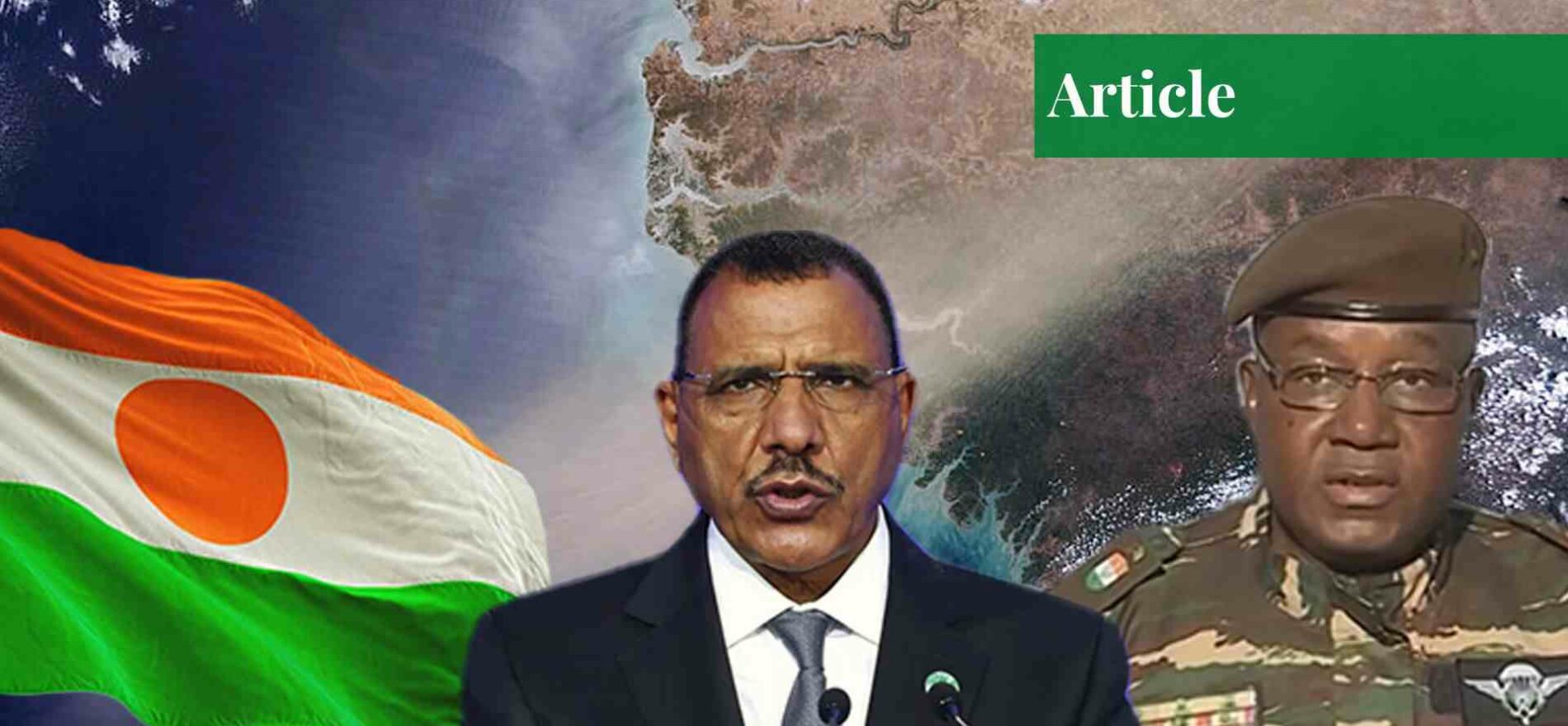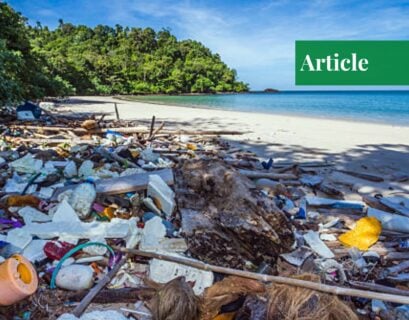Ms Alishbah Syed is pursuing her Bachelor's degree in International Relations from University of Peshawar.
Introduction
It is not the first time a coup has occurred in Niger, much less in the region of West Africa, and it probably won’t be the last time, considering the tendency of a coup increases with every coup. This coup, however, is not your usual run-of-the-mill coup. The causes of the declining state of affairs on both economic and security fronts through corruption are the same. The instigators’ actions of over-militarization and repression of civilian organizations are similar, but the consequences are much graver than before.
What Has Happened So Far
Niger’s borders were closed off, a nationwide curfew was placed, and all civil institutions in addition to the constitution were suspended. Political activities within the country were also suspended. Niger’s army pledge their allegiance to the defense and security forces that overthrew Bazoum. Coup supporters were seen celebrating the change of governance in the capital with anti-French and anti-Western rhetorics. According to the military junta leaders, the coup was all to avoid “the gradual and inevitable demise” of Niger.
Widespread condemnation of the ousting has sparked from the US, France, Germany, EU (European Union), AU (African Union), and ECOWAS (Economic Community of West African States). The EU and France have also cut off financial support to Niger, causing a loss of 503 million euros ($554m) and 120 million euros ($130m-expected to increase this year) of budget support to Niger until the condition of return of constitutional order is met. Germany has followed the trend with the suspension of direct support payments to the country and the United States has also threatened to do the same.
ECOWAS leaders, after an emergency summit in the Nigerian capital for deciding further actions in response to the coup, have demanded the reinstatement of Bazoum within a week or else “all measures” will be taken for it to happen. Although the use of force has been included in those “measures”, it is not certain what type and level of force the ECOWAS is willing to use.
Aside from threats of military actions, ECOWAS has slapped financial sanctions on Niger and frozen all commercial and financial transactions. This also includes Nigeria cutting off electricity in many Nigerien cities, including the capital. The junta leaders of Niger have warned the ECOWAS against any armed intervention. Juntas in Mali and Burkina Faso have voiced their support for the military leaders in Niger, complicating the already awkward situation.
While the juntas in Mali and Burkina Faso are standing behind Niger’s military rule, military leader Chad’s President Mahamat Idriss Deby traveled to Niger as an envoy to urge the junta leaders to heed ECOWAS’ ultimatum. Though Chad is not part of the regional organization, President Deby attended the emergency summit. His presence as a military strongman is seen as ideal to strike a rapport with the Nigerien coup leaders and convince them to step down.
The AU has so far issued a 15-day ultimatum to the junta leaders to restore constitutional order. A planned 30 billion CFA franc ($51m) bond was also cancelled by the Central Bank of West African States (BCEAO) meant for Niger. The humanitarian conditions in Niger are in crisis as it is a landlocked state whose citizens depend upon foreign aid and imports. Evacuations of foreign civilians have begun at a slow pace while troops, most French, are still present at the moment. Wagner mercenary boss, Yevgeny Prigozhin, has hailed the coup and offered his fighters’ services to bring order.
On a trade front, the price of uranium has risen slightly and is expected to rise further. It is to be noted that Niger is the world’s seventh-largest producer of the radioactive metal. This becomes relevant as mining companies, especially the French company Orano, continues their operation in Niger. Though this market remains untouched amid the chaos, the EU’s nuclear agency, Euratom, feels no panic in case of disruption of supplies due to the stockpile of uranium said to last them three years.

Since 1st August, Niger announced the reopening of its borders with Algeria, Burkina Faso, Chad, Libya, and Mali, but the borders that have reopened are mainly in remote desert areas, leaving Niger’s key entryways for trade and commerce closed due to restrictions imposed by ECOWAS. Five military accords with France were scrapped and French state-funded international news outlets suspended on 3rd of August.
On the 6th of August (the deadline for the ultimatum), the citizens of Niger filled up a stadium in their capital to celebrate the ascension of military rule with the beheading of a rooster painted in the colors of French. Russian flags were waved openly during the celebrations. In addition, the military leaders of Niger closed the airspace in suspicions of military deployment.
Benin, Guinea-Bissau, Ivory Coast, Nigeria, and Senegal are willing to send troops, though Nigerian senate has been unsupportive of any military action by Nigeria. Algeria and Chad, neighbors of Niger, are against a military solution and insist on further diplomatic efforts lest the conflict overtakes West Africa. On 10th August, an emergency summit in Nigeria commenced yet again hours after Niger’s coup leaders appointed a new interim government.
Tinubu, head of ECOWAS, said at the summit in Abuja before a closed-door session began “It is our duty to exhaust all avenues of engagement to ensure swift return to constitutional governance in Niger,” They did just that by approving the activation of ECOWAS Standby Forces to restore constitutional order in Niger. Restoring order was mentioned to be done ‘through peaceful means.’ Though plans have already been made for possible military intervention by ECOWAS’s defense chiefs, there is still no clear indication of when, under what conditions, and how much military force will be used.
Dangers to West Africa
In terms of geopolitics, West Africa is positioned at the crossroads of Europe, the Americas, and the Middle East. Its proximity to the Atlantic Ocean and its location along major international trade routes make it a crucial link between different regions of the world. The geographical positioning is further sweetened by the abundance of valuable resources such as oil, gas, minerals, and agricultural products.
Countries like Nigeria, Angola, and Ghana are significant oil producers, while others like Guinea and Sierra Leone possess vast mineral reserves. The exploitation and trade of these resources play a significant role in global markets and impact international relations.
The Litmus Test For Democracy
After the coup in Niger, an uninterrupted chain of military-ruled countries has formed across the Sahel region. This stretches from the Atlantic Ocean coast to the Red Sea coast. It is considered the ‘coup belt’, a new geopolitical phrase characterizing an area with a high prevalence of coups d’état. This belt includes Guinea, Mali, Chad, and Sudan with their coup in 2021, Burkina Faso with its coup in both January and September 2022, and Niger which joined in 2023.

With Niger being the final nail in the coffin, all the progress toward democratic governance in the region has been undermined with further concerns of more chaos to come. The prospects of democratic leadership in the region have become bleak. This is especially when questions are raised over why Niger’s democracy was so frail in the first place to be susceptible to a coup despite more than half of its citizens being satisfied with the way democracy worked in their country according to a 2022 survey.
Loss Of Security Stronghold
Niger had a very important role in providing a base of operations for counterterrorism, led by the US and France, against the Islamic militants in the region. This is especially the case for Nigeria as both of their security is intertwined with Boko Haram compromising the national security of both of these states.
What was once a pro-western African country has joined the ranks of military-ruled countries, creating the longest military corridor of 3,500 miles. There is no chance for cooperation from Niger in security operations against militant groups of the region, much less any guarantees of it not disrupting the operations.
Loss Of Economic Opportunities
Niger was part of the Trans-Saharan Gas Pipeline, a planned pipeline that would transfer gas from Nigeria to Europe to diversify the EU’s energy supplies from Russia. Though only two West African countries came under those plans, it had long-term benefits to the whole region by bringing economic prosperity in closer proximity. Many economic investments or initiatives like this must be crossed out for West Africa until the security situation stabilizes.
If you want to submit your articles, research papers, and book reviews, please check the Submissions page.
The views and opinions expressed in this article/paper are the author’s own and do not necessarily reflect the editorial position of Paradigm Shift.


















